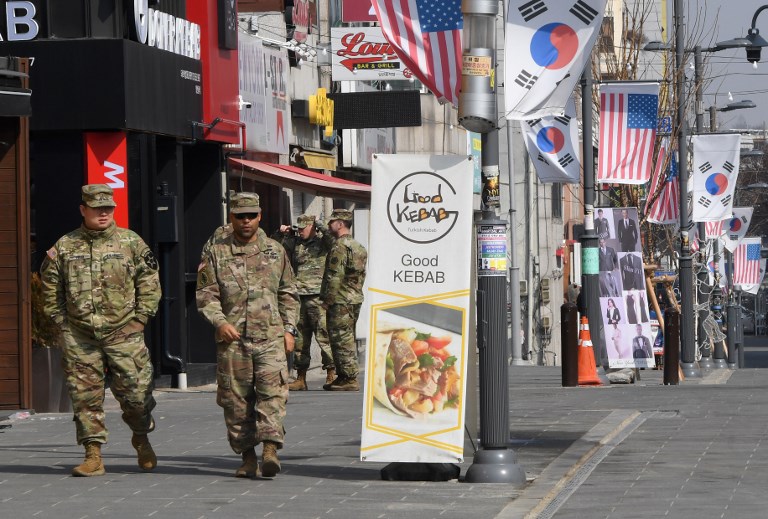
WASHINGTON, United States (AFP) — The US military and South Korea are planning to “discontinue” annual large-scale military exercises as President Donald Trump pursues efforts to improve ties with North Korea, a US official told AFP Friday.
The comment from the official, who spoke on condition of anonymity, came shortly after the conclusion of Trump’s second summit with North Korean leader Kim Jong Un in Hanoi, which ended without a formal agreement but with both sides suggesting they will keep talking.
NBC News first reported that the Foal Eagle drills — which usually take place in the spring — would be scrapped, citing two unnamed US defense officials.
Foal Eagle is the biggest of the regular joint exercises held by the allies, and has always infuriated Pyongyang, which condemned it as preparations for invasion. In the past, it has involved 200,000 South Korean forces and some 30,000 US soldiers.
It overlaps with the Key Resolve exercise.
Since Trump’s first summit with Kim last year in Singapore, the US and Seoul have scaled back or scrapped several joint military drills, and US bombers are no longer flying over South Korea.
Trump has repeatedly complained that the exercises are too costly.
NBC reported that the annual exercises would be replaced with “smaller, mission-specific training.”
The Republican president however has ruled out withdrawing any of the 28,500 US forces based in South Korea to defend it from its nuclear-armed neighbor, which invaded in 1950.
Any such drawdown would face strong pushback from the US Congress and Japan, whose conservative government is deeply wary of North Korea’s intentions.







